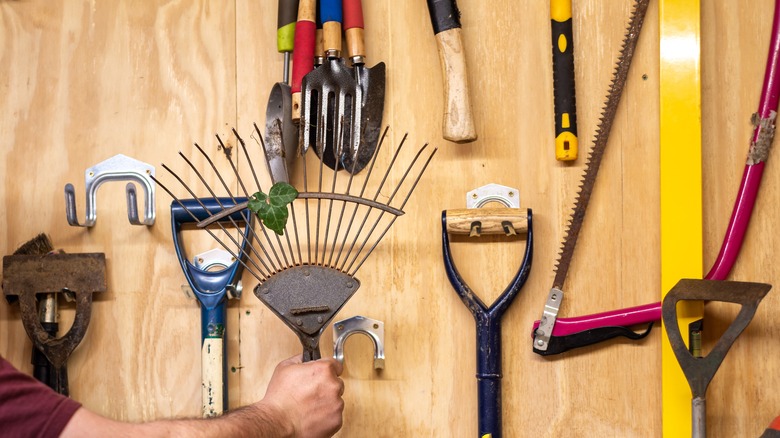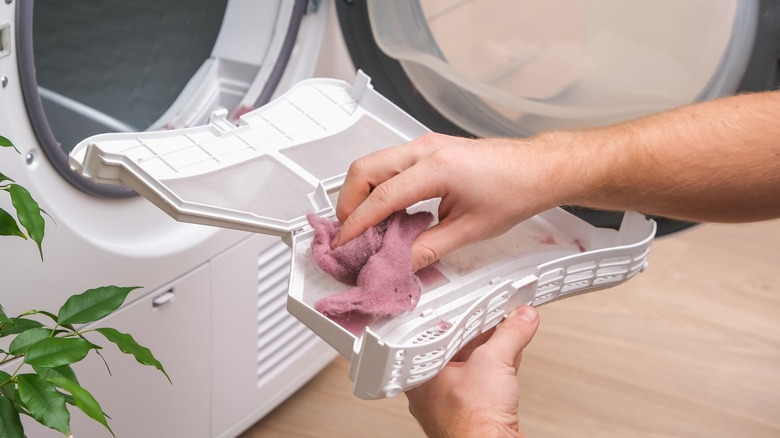Your Tools Will Be Shining Like New With The Help Of Some Old Dryer Lint
If you're good at keeping your dryer's lint trap clean (which you hopefully are, as lint build-up can be a significant fire hazard, according to the Consumer Products Safety Commission), you might wonder if there's anything you can do with all that lint besides tossing it in the garbage pail. In fact, there are many ways to repurpose dryer lint if you save it up in a DIY lint bin. (You can even buy a lint bin premade if you're not crafty.) Once you have a stash of lint on hand, you can use it to oil your garden tools before stowing them away for future use.
For this simple task, all you need is a piece of dryer lint and some linseed oil, which you can likely find at your local home improvement warehouse or big-box retailer. Simply grab a wad of lint and pour some of the linseed oil on it. Then, rub a thin layer over the tool's entire surface. If you apply too much, you can wipe away the excess with a clean rag. This trick will keep wooden handles from cracking and rust from forming on metal surfaces. For the best results, clean your tools appropriately before oiling them.
Exercise caution when combining lint and oil
Of course, adding oil to dryer lint combines two flammable materials. Be sure to spread any pieces of lint out to dry in a safe place and store them in a metal container, the same way you would with oily rags. How to dispose of them properly may vary depending on where you live, as noted by the Seattle Fire Department.
If you don't have linseed oil handy, there are other types you can use to keep wooden handles from drying out and splintering. Tung oil is one of these; it's usually available at home improvement warehouses, but if you've refinished any furniture recently, you may already have some on hand. Like linseed oil, one of its benefits is that it dries quickly. Other oils like walnut or coconut can also be used on wood. If your handles are so weathered that they're already splintering, smooth them with fine-grade sandpaper before oiling them.
For metal surfaces and tool heads, any oil you choose for your wooden handles will work, but there's another economical option to consider here: vegetable oil. Yes, for metal, you can use plain old vegetable oil straight from the pantry. With regular oiling (and proper disposal of materials), you can safely keep all your tools clean, shiny, and ready to use with minimal effort.

